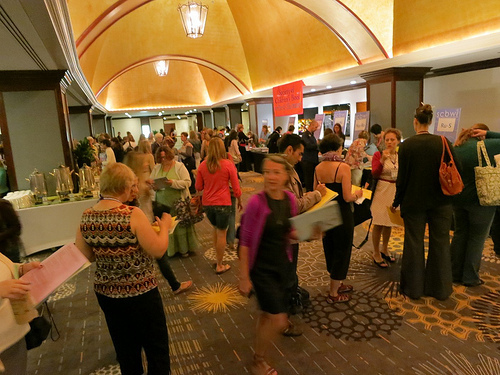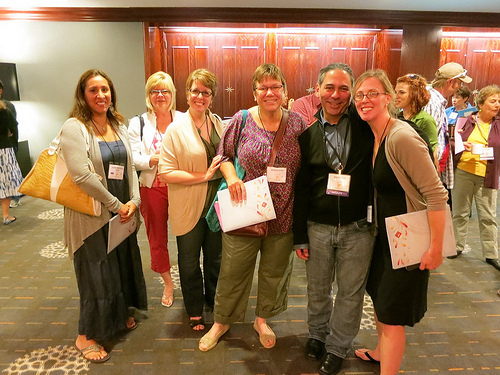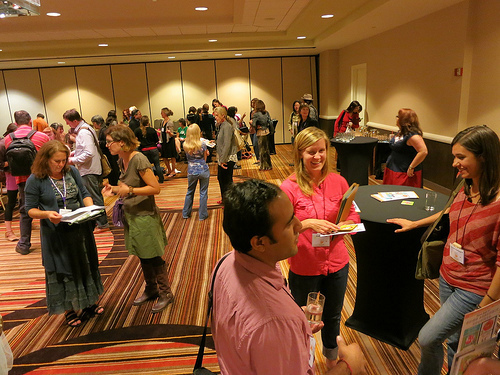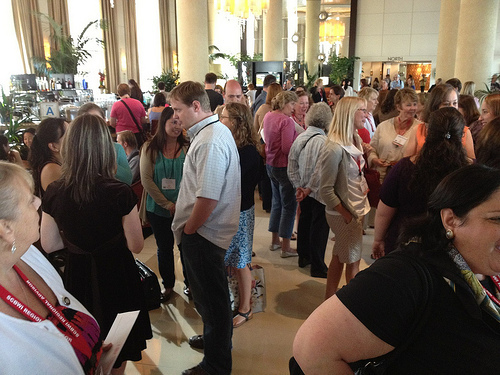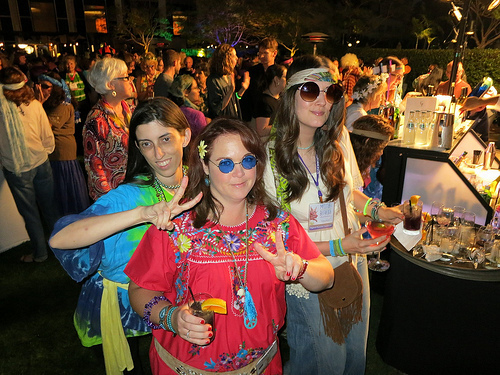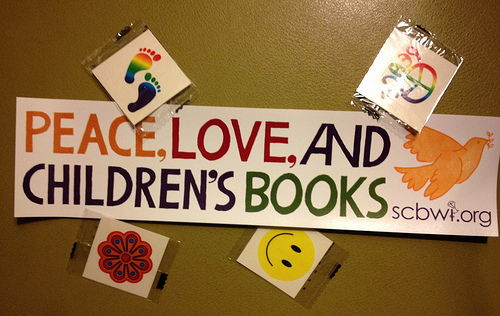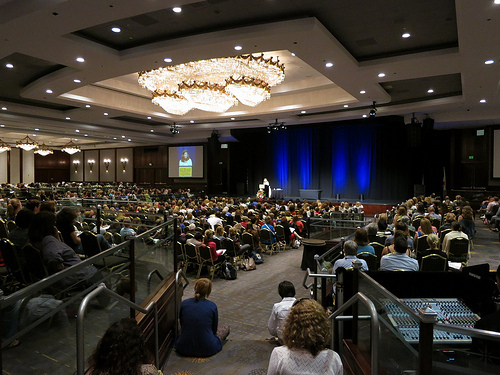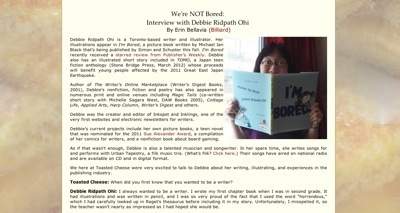Debbie Ridpath Ohi's Blog, page 110
August 15, 2012
SCBWI-LA Takeaway #1: Don't expect everything to happen at your first conference. Experience breeds opportunity.
Instead of trying to do a long report about the 2012 SCBWI Summer Conference, I'm going to do takeaways; it'll increase the possibility that I'll actually post them. :-)
So here's my first:
SCBWI-LA Takeaway #1: Don't expect everything to happen at your first conference. Experience breeds opportunity.
At my first SCBWI conference (the first time I decided to start going regularly, that is), I didn't know anyone, or at least not very well. When I made the decision to go in 2009, I was WAY nervous about the possibility of going home feeling like I had wasted all that time and money. And yes, a tiny part of me couldn't help but secretly hope that HEY, maybe I'd be "discovered" and come home with a book contract.
While I enjoyed that conference, however, I didn't come home with a book contract. My manuscript critique had not gone well, and I even wondered whether the editor had read my mss; she had only made one mark, and that was to correct a typo. She never referred to anything in my mss but asked me to summarize my plot on the spot, then critiqued my clumsy and unprepared verbal pitch.
BUT I did enjoy meeting a lot of writers and illustrators, plus was inspired by the keynotes and workshops. I was determined to come back the next year, and would be more prepared. For the manuscript, for example, I wanted to be ready for the possibility that the person critiquing my mss had not read it. I could see how that could happen -- the mss might have slipped by the wayside somehow, or the editor might have run out of time. But in that case (or even in any other case), I needed to be able to give my elevator pitch more coherently AND have questions ready, so that I could still get something out of the session.
Something else I learned since I began going regularly to these conferences: the more you go, the more you'll get out of it. You'll know more people and be able to have more meaningful conversations. You'll stop feeling like a "newbie trying this out" and will have a better idea of what you want to get out of the conference. More experienced types will start to recognize you and see that you're seriously pursuing children's book writing and/or illustration rather than just testing the waters.
Very, very few conference attendees get a book offer at the conference. Adjust your expectations next time, and look for the many other ways that the event has helped you and could help you in the future in terms of knowledge, inspiration, connections and friendship (the latter two are not exclusive).
So…if you just came back from your first conference disappointed about how it went: instead of being bitter or resentful, try to focus on the positive aspects. What did you learn? What cool people did you meet (and how can you maintain contact with them during the year, even if it's just reading and commenting on their blogs or tweets or FB posts)? What can you do differently next year? Make some notes NOW, while everything is fresh in your mind.
But most of all, remember that this was only your FIRST CONVENTION.
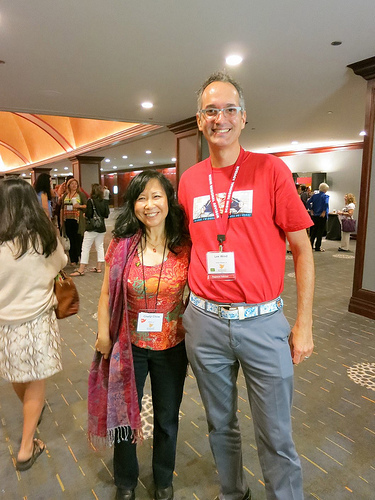
Lee Wind with first-timer Cherryl Chow.
Kudos to you for going in the first place. You've already made an important early step in pursuing what you want; most aspiring writers and illustrators never get that far, so you're already ahead of the game.
And who knows what might happen next time?
p.s. Note to those who can't afford to go to the SCBWI convention in LA: look for similar opportunities closer to home. Join your local writers' organizations and attend meetings. Or if you can't find one, try starting your own group. Online networking is great but I've found that nothing beats chatting in person.
---
You can see my photos from the SCBWI Summer Conference on Flickr: Set 1 - Set 2 - Set 3







August 12, 2012
Photos from SCBWI Summer Conference in Los Angeles 2012
Recently came back from the annual summer conference in LA held by the SCBWI (Society of Children's Book Writers & Illustrators). What an amazing, inspiring event! I'll be posting some personal takeaways and photo faces from the conference, but for now, here are links to my photo sets:
ON FLICKR:
ON FACEBOOK:
I've started to get a lot of requests for individual photos to be mailed -- I'm uploading my photos to both FB and Flickr, so please do feel free to scoop any for personal or self-promo use. If you post any publicly, I'd appreciate a photo credit (something like "Photo: Debbie Ridpath Ohi - DebbieOhi.com; or "Photo: Debbie Ridpath Ohi (DebbieOhi.com), illustrator of I'M BORED"). Thanks!







August 9, 2012
Tara Kressler On Libraries and Being A Librarian
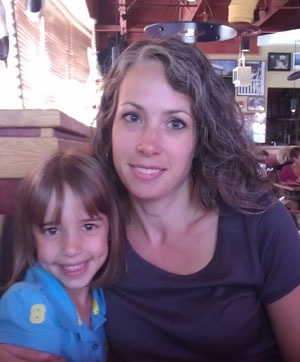 Thanks so much to Tara Kressler (@taralibrara on Twitter) for being my 20,000th follower on Twitter! As a prize, I let Tara pick whichever item she wanted from my I'M BORED swag shop (proceeds to go Riley Carney's Breaking The Chain nonprofit literacy).
Thanks so much to Tara Kressler (@taralibrara on Twitter) for being my 20,000th follower on Twitter! As a prize, I let Tara pick whichever item she wanted from my I'M BORED swag shop (proceeds to go Riley Carney's Breaking The Chain nonprofit literacy).
Tara works for the Public Library of Cincinnati and Hamilton County, and has kindly agreed to answer a few questions about being librarian.
Why did you decide to become a librarian?
Becoming a librarian was one of those situations where life sort of took me there but looking back, I can see no other path for myself other than this one. During senior year in college I was doing my thesis for Art History. The dumbest of dumb things happened: I found out how much a museum worker got paid annually and I thought, oh sh*t, time for a Plan B. A classmate and friend of mine was working part time for the library and as I was lamenting my future to her, she suggested I get a part time job at the local public library.
Once I got into the job, it was like why didn't I think of this in the first place? Have you ever done something and found you were just good at it? And it surprised you? That's how I felt about working at the library. I'd been there for just a short time and experienced this. At that point, several months in, I started to study for the GRE. And that is where my fate took me.
What do you like most about being a librarian?
My answer is going to be very narcissistic. I love being a librarian because of the way it makes me feel. Purely selfish reasons. I work each day doing something different, challenging, meaningful.
I give people the answers they are looking for. They are grateful for my expertise, they are appreciative for my help. This is with both customers and staff. Staff look to me to help them grow professionally, to create a positive working experience for them and I do that willingly. It is a nice stroke of the ego.
I like taking care of people and providing for them. I like the detective work of the job, finding the answer and then the big reveal. It is all very exciting stuff.
If someone was trying to cut library funding, what argument would you give them to keep it?
I don't really see it as an argument but rather an enlightenment. Everyone has benefited from the library in some way, it is just a matter of having a conversation, finding out what that is and to appeal to them to want to continue that legacy.
A library has always been an integral part of a community, had some sort of involvement in the upbringing of people and despite the materials changing, those concepts do not.
What attracts you to a book and makes you want to read it?
I do two community book clubs a month and with two little kids, it doesn't give me a lot of time to read all of my guilty pleasures. Often I try to marry the two and force my book clubs to read what interests me, like recently it was the Night Circus and In the Garden of Beasts.
Fortunately, they are good sports about it and those are good discussable books to incorporate. My most recent non book club selection was Game of Thrones. I ordinarily would never pick up such a book but my staffer teased me into it, even giving me a paperback copy to lug around. It was quite a commitment at almost 1000 pages but it hooked me and I went with it.
So essentially, if you twist my arm and bully me enough, I will read what you tell me! Otherwise, I keep a nice list on Goodreads of things my customers recommend or reviews in magazines or whatever comes through the Branch that has a pretty cover. My secret guilty pleasure is cook books, but don't tell anyone....
What are some of your favourite recent reads?
Some of favorite recent reads have been The Night Circus by Morgenstern which I listened to on audio in complete rapt attention because Jim Dale read it amazingly. Also, Ready Player One was an audio I listened to and thank god Wil Weaton read it, otherwise I would have no idea what was going on and would have abandoned it immediately. I love Lee Child books and was heartbroken to learn Tom Cruise would be Jack Reacher in the movie adaptation of One Shot, but enjoyed The Affair. Tom Perrotta's The Leftovers was so subtle but powerful and I threw in Habibi, an epic graphic novel for fun.
----
You can follow Tara on Twitter at @taralibrara.







August 8, 2012
Comic: Revision Angst
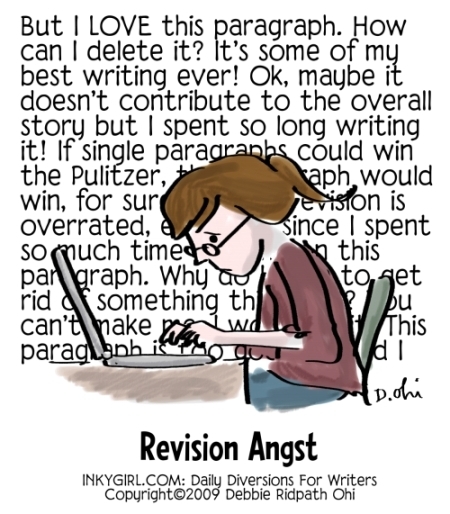
Thanks to Writers Write Creative Blog for making this particular comic so popular on Facebook right now. :-)
I'm posting some of my older comics here as I catalog and tag them in prep for a print book compilation. You can find my comics for writers on Inkygirl (http://inkygirl.com), Tumblr (http://inkygirl.tumblr.com) and Pinterest (http://pinterest.com/inkyelbows/comics-for-writers-inkygirl-com)







July 30, 2012
Interview with Helaine Becker, author of How To Survive Absolutely Anything
Helaine Becker is one of the most enthusiastic and productive writers I know. I met Helaine through Torkidlit: the Toronto Area Middle Grade and YA Author Group. She has written over 50 books, including the best-selling picture book, A Porcupine in a Pine Tree, the Looney Bay All-Stars series; popular non-fiction, including Magic Up Your Sleeve, Secret Agent Y.O.U. and The Quiz Book for Girls; and young adult novels including Trouble in the Hills and How to Survive Absolutely Anything.
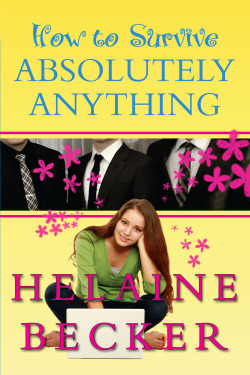 Q: Could you please tell me a little bit about your book? What inspired you to write it? What it's about?
Q: Could you please tell me a little bit about your book? What inspired you to write it? What it's about?
Author and friend Marsha Skrypuch inspired me to write the book. We were having lunch one day and we were discussing how, when you write illustrated books for children, your royalties are divided with the illustrator. Fair enough. But Marsha said, “Gee, Helaine, if you wrote a YA novel, you might make more money since you won’t have an illustrator….”
As a hardworking writer, the idea of making more money appealed to me, so I thought I’d give it a try! I had a story idea niggling at the back of my brain, so I wrote it up. And Voila! How to Survive Absolutely Anything was born.
I somehow don’t think I’m going to wind up making that much more money on it than some of my picture books (A Porcupine in a Pine Tree hit #1 on the National bestseller list last year). Nevertheless, I enjoyed writing it, learned a lot about the craft of writing from doing it, and have enjoyed the whole process immensely.
Q: What was your research/writing process? How did the book get published?
This book did not require any major research, but most of my other books – I do a lot of nonfic – have a lot of research involved in them. For Trouble in the Hills, a YA adventure that I wrote after How to Survive….. (but it was published first), I had to research what a dead body that had been lying in an alpine cave for a year would look like. That was delightfully gruesome.
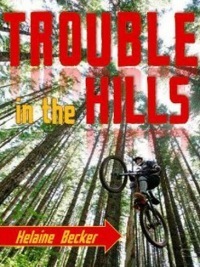 I also had to research drug growing in BC, human trafficking in BC, and mountain biking – to get all the info I needed I had to dig into newspaper stories, but also interview forensics pathology experts and cyclists in Grand Forks BC.
I also had to research drug growing in BC, human trafficking in BC, and mountain biking – to get all the info I needed I had to dig into newspaper stories, but also interview forensics pathology experts and cyclists in Grand Forks BC.
I’m working on another YA novel right now that involves fireworks. To research that project, I signed up for “Fireworks School” – a training course for pyrotechnicians. I’m now certified – as well as certifiable. ;)
How did Survive get published? After I wrote it, I stuffed it my drawer and tried my hand at a second, more ambitious novel. Both of these novels then went through the “kidcrit” process – the online critique group through Compuserve. Funnily enough, people seemed to like the second book better, so I tried to sell that one first, with no luck.
Now, looking back at it, I can see the flaws in it, so maybe one day that will get a rewrite. Anyhow, after a trip to Grand Forks BC for an author tour, I conceived the plot for Trouble in the Hills.
I wrote up a synopsis and some sample chapters and pitched it Christie Harkin at Fitzhenry and Whiteside. She liked it and offered to buy it. In conversation I told her I also had a “girls” manuscript, and she asked to see it.
Surprise surprise, she liked that too, and bought both of the books in a two-book deal. Trouble came out in Autumn 2011; How To Survive came out in June 2012. We’re talking about a sequel to Trouble in the Hills now – we’ll have to see what happens!
I didn’t have an agent to sell these books. In fact, although I ‘ve had an agent at several points in my career, I’ve always sold my own work directly. I don’t think anyone can really represent you better than you can yourself if you have sales skills.
I’ve published more than 50 books, trade and educational, in Canada and the US, without an agent. I think it’s a lot harder to do this, though, in the US trade market than it is in Canada or in the educational field. So I am now talking with my dream agent to rep my work in the US. We’ll see how that goes but my fingers are crossed that we’ll work something out and I can continue to grow my career with her.
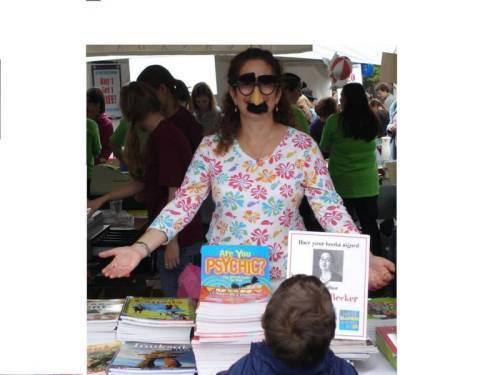
Q: You said you learned a lot about the craft of writing while working on How To Survive Absolutely Anything. Could you give an example?
I had often heard people talking about how too many varied dialogue attributions (remarked, demanded, cried, interrupted, etc. instead of a simple “said”) and attributions modified by adverbs weaken your text. I didn’t really see it, until I was revising this book. Then I finally understood! Rather than saying, “Close the door,’ she scolded angrily,” it would be stronger writing to put “Shut that damn door already!”
Once I saw how adapting my dialogue in that way would get rid of lots of unnecessary words and make the whole text tighter, I went through the whole manuscript again, making changes. This was, unfortunately for my poor editor, the day before the book was supposed to go to press! But we both agree – it was worth it. The book is better now than it would have been.
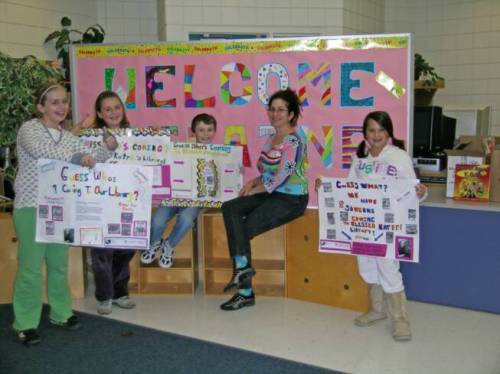
Q. I've heard such great things about your school presentations! What one piece of advice would you give a new author who is just starting to give presentations?
Ask another writer if you can go and observe their presentations before you do your own. That way you can learn the ins and outs – how to check in with the school office, how to present your invoice, how to organize your space, etc.
Observe how the author handles interruptions, how they handle questions and answers, etc. It’s much easier when you’ve seen someone else do it first rather than going in completely cold. Also remember that kids are very forgiving audiences so don’t fret too much. It will turn out ok, and if it doesn’t people will still enjoy a good laugh!
[image error]Helaine's dog Ella is always present while H. works, adding editorial commentary.Q: How much outlining do you do? What is your typical work process or work day?
Some of my books have been completely outlined. Others, like How to Survive, were more organic. I prefer to work with an outline. My typical work day starts late (after ten) and very slowly. I’m not a morning person, which is one reason why I’m a writer – I’ve been fired from every job I’ve ever had, mostly for being late! (If work started at noon….)
I like to warm up by checking and writing emails, then gradually work my way into the frame of mind to start writing REAL stuff. That being said, I’m extremely disciplined.
I write pretty much every day between 10-4, and if I’m on a deadline, between 10 and whatever. I work in my kitchen and can tune out everything around me as I work, much to the annoyance of my family. They want me stop typing and start making dinner. They, however, know where the fridge and stove are too, so I ignore them.
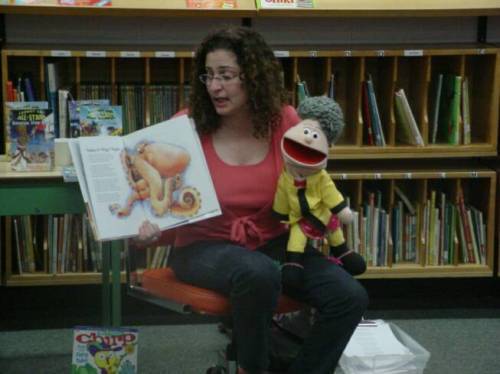
Q: What advice do you have for aspiring authors?
I know most people tell you you should read a lot and get writing partners etc. But I think every single writer should take some basic business and sales courses. As a writer, you are really the sole proprietor of a business.
You need to know how to run your business and sell your product if you want to have a hope in hell of making a living and/or not getting stomped by unscrupulous parties.
I spend at least 50% of my work time preparing pitches and putting prospective projects “in the pipeline” – that’s a basic sales technique that guarantees you never wake up one morning with no contracts and no work and a mortgage you can’t pay.
I’m going to be teaching a session at Canscaip’s Fall writing conference, Packaging Your Imagination, on this topic. If you are in the Toronto area and have no idea what “qualifying the customer” or “profit centre” mean, this seminar is for you.
Q: What are you working on now? Anything else you'd like people to know?
What am I working on now? A zillion things, as usual. I have four – yes four! – books coming out this fall, 2 quiz books and two picture books, both of which have final edits on the go.
I’ve just finished my first draft of a new nonfic for Kids Can Press, coming out in 2013. I’m on the fourth draft of a YA horror, and working on the first draft of a funny middle grade novel.
Going back and forth between those two books as well as a verse picture book I’m polishing for Scholastic Canada really makes my head spin! I also put manuscripts away for a while to mature (this really means I didn’t have luck selling them the first time out!).
I pick those up when I have time and look at revising them. I’ve got three of those in the “on deck” circle right now.
I NEVER consider any project dead – they are all just resting. I’ve recently gotten an offer on a project that has been in my drawer since 1999. The Big Green Book of the Big Blue Sea (Kids Can Press, 2012) was based on a pitch I wrote up in 1998. And my quiz book series with Scholastic Canada grew out of another ancient proposal that I’m sure most people would have considered compost. I just looked it up – it had originally been dinged in 2002. But when the opportunity arose, I rewrote the pitch and gave it to Scholastic, and now, well, it’s four-books and more, I hope to come!
So my advice would be to everyone to hang on to all your old stuff and periodically go through it to see what still has potential. Often good projects are rejected because the timing or fit is bad.
When the times change, and personnel changes, you may find the perfect fit for that old raggedy project, restitched into a new suit.
Q: Where can people find you online?
Here are all my online deets:
www.helainebecker.blogspot.com
follow me at www.twitter.com/helainebecker
------------------------
Did you enjoy this interview? Check out other Inkygirl interviews.







Comic: Punctuation For Sale

I'm posting some of my older comics here as I catalog and tag them in prep for a print book compilation. You can find my comics for writers on Inkygirl (http://inkygirl.com), Tumblr (http://inkygirl.tumblr.com) and Pinterest (http://pinterest.com/inkyelbows/comics-for-writers-inkygirl-com)







July 27, 2012
My Toasted Cheese interview on NOT being bored: my unusual career path, time management, working with Simon & Schuster and more
Thanks to Erin Bellavia for interviewing me for Toasted Cheese, a writing community and literary journal. I had lots of fun answering these questions. :-)







July 24, 2012
Interview with Jocelyn Shipley about HOW TO TEND A GRAVE
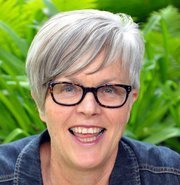
I met Jocelyn Shipley through Torkidlit: The Toronto Area Middle Grade and Young Adult Group and loved her YA novel, HOW TO TEND A GRAVE (Great Plains Teen Fiction, 2012).
Born and raised in London, Canada, Jocelyn graduated from York University and has attended The Humber School for Writers. She is co-editor of Cleavage: Breakaway Fiction for Real Girls, and her books for teens include Seraphina’s Circle, Cross My Heart and Getting a Life. Her work has been translated into Swedish, Norwegian, Finnish and German for Stabenfeldt’s tween book club GIRL:IT. Her award-winning stories have appeared in anthologies, newspapers and magazines. She lives in Toronto and on Vancouver Island.
Q: Could you tell us a little bit about your new novel, How To Tend A Grave?
Hi Debbie, and thanks so much for interviewing me on your blog. I'm thrilled to tell you about my new book. How to Tend a Grave is contemporary fiction for readers 14 & up. It was published in April 2012 by Great Plains Teen Fiction.
[image error]Here’s the back cover blurb:
“When Liam’s mom is killed, he thinks life can’t get any worse. He’s wrong. He’s forced to live with a grandfather he’s never known, in a small town where kids called Youth and Crime lead the local gang. They’re posers, but they mean trouble, and their favourite hangout is the cemetery where Liam’s mom is buried. But the cemetery is also where Liam meets Harmony, a gorgeous but unusual girl who records the names of all the babies buried there long ago. Besides their grief, both Liam and Harmony have secrets. The very different stories of these two fifteen-year- olds interweave brilliantly throughout this fast-paced, engaging and unforgettable novel about family, love and healing.”
I started writing this book in 2005, when I was living in Kingston, Ontario, and read in the local paper about teens vandalizing a historic cemetery. I wondered what would make a kid do something like that, and began to create a male character lost and angry enough to desecrate a cemetery.
At first the book was just Liam’s story. But it didn’t have enough depth, and I put the manuscript aside to work on other things. When I went back to it a year or so later, I decided that what it needed was a female character for Liam to fall in love with. I hadn’t planned to write a book with two main characters, in two different voices, but somehow that’s how things developed.
Q: How did the book get published?
My other books were all published by a small literary/feminist publisher, but this book didn’t fit their list, so I had to look elsewhere.
Since I don’t have an agent, I sent out query letters with a synopsis and sample chapters and had requests for the full ms from four Canadian and one American publisher. Two of these were interested but went out of business before offering a contract, one pretty much hated it, and two sent what I call “glowing rejections”.
Those letters started out raving about the book, then ended by saying sorry, just not right for us. All five editors did offer great feedback though, and I used their comments and suggestions in yet another revision.
Then I heard about Great Plains Publications, and contacted their teen fiction editor, Anita Daher. She was interested, so I sent her the full ms by email, and two weeks later she phoned. It was a writer’s dream call – she loved the book, so did the publisher, and they were ready to offer a contract.

Q: What's your typical process when working on a novel?
I know I’m very lucky to be able to write full-time, and I try to make the most of that. My work day starts with coffee and a quick check of email and social media. Then I try to write for a couple hours. After that I go for a walk, run, swim or bike ride, and consider this an extension of my writing time.
I let my characters tell me what they’d really say and do and I try to figure out plot details and listen for new ideas. After lunch I usually write a bit more, then look after the business side of being a writer – answering email, reading newsletters, blog posts etc, then looking at FB and Twitter again.
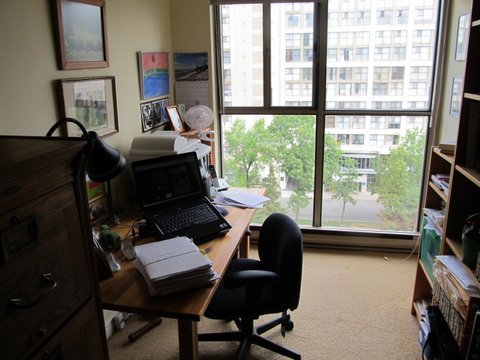 A stack of seven drafts of How to Tend a Grave in Jocelyn's Toronto workspace.
A stack of seven drafts of How to Tend a Grave in Jocelyn's Toronto workspace.
Of course lots of days everything happens in a different order, and some days I seem to get nothing much done at all. But I strongly believe in the power of the unconscious – somewhere in my mind I am always working on my stories.
I usually have about three ms on the go at a time, in different stages of development, from first draft to final revisions, so I always have something to work on. I haven’t outlined much in the past, but plan to do more of that with new projects.
I find first drafts the hardest, so an outline would probably help with that. I’m happiest rewriting – I like the feeling of having something to work with. On a really good day I might get about five hours of writing done. But it’s usually way less.
I don’t worry about reaching a certain word count – that doesn’t work for me. I could spend an hour on a paragraph – probably even on a sentence.
 My coffee shop doodle while reading Jocelyn's book
My coffee shop doodle while reading Jocelyn's book
Q: Any advice about rejection?
Try to remember that publishing is a business, and even though rejection of your book can feel personal, it's really not. Agents and editors receive hundreds of queries and manuscripts every week – they can’t possibly accept them all, even if they love them. That's just the reality of the marketplace, and doesn't mean that you're not a good writer or your book isn't publishable. So never give up. Like, never.
Even writers who've published many books still get rejected. And what they do is, they keep going. When my work isn't accepted, I allow myself 24 hours of feeling hurt and upset, then it's on to my 3 Rs of rejection: Rise above. Rewrite. Resubmit.
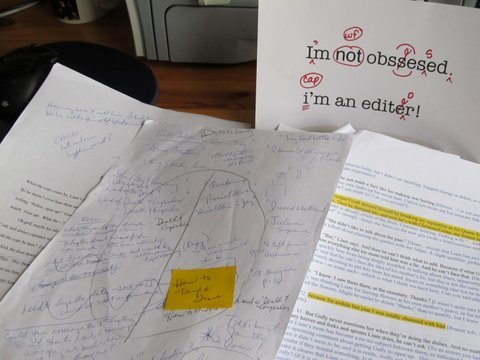 A page of title ideas and a page of editor Anita Daher's emailed notes.
A page of title ideas and a page of editor Anita Daher's emailed notes.
Q: Do you have any other advice for aspiring writers?
Read, read, read. I'm always surprised when people say they want to write, but never bother to read anything.
Read the kind of books you'd like to write. Write, write, write. Just begin, and then continue. A book is written word by word. Join a few together and you've got a sentence, then a paragraph, then a chapter. That's it.
The real secret of writing is simply writing.
Rewrite, rewrite, rewrite: My first drafts aren't pretty. They're not perfect. And they're never publishable. Yours probably won't be either. So put your work away for awhile, then go back and revise. Then revise again.
Q: What are you working on now?
I’ve just finished a tween novel and am revising my first historical YA novel. After that I plan to work on a YA romantic thriller.
Q: Where can readers find you online?
My website and blog: www.jocelynshipley.com
Twitter: http://twitter.com/sageshipley
Facebook: https://www.facebook.com/JocelynSageShipley







July 23, 2012
Comic: Scrabble Addict

This comic was actually created several years ago, but I revamped the copyright info to include my website. It was inspired by my Scrabble addict friend, John Chew.













